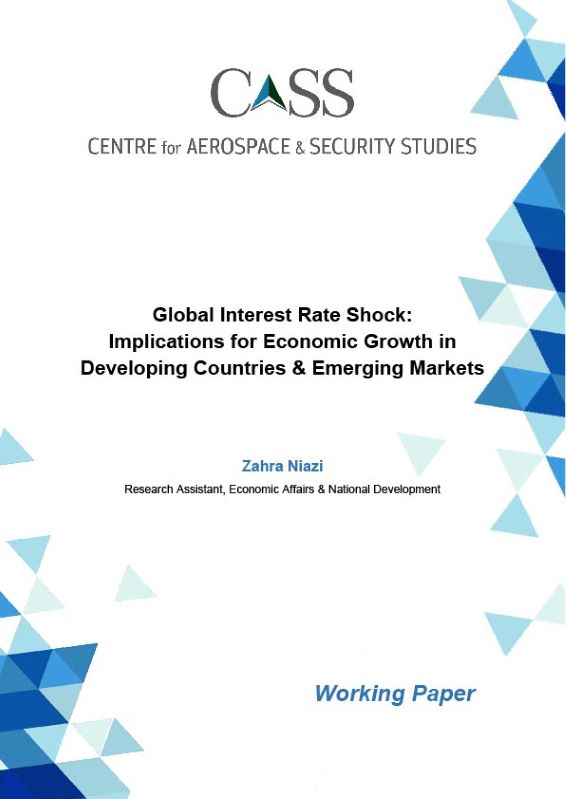Abstract
In recent years, global economies have been confronted with multiple challenges, including but not limited to the COVID-19 Pandemic, natural disasters, and the Russia-Ukraine War. The impact of these events has been stronger for developing countries and emerging markets. While struggling to grapple with the stronger impact of these challenges, the implementation of tight monetary policies by the United States’ Federal Reserve System (or the Fed) and other major advanced economies has given rise to concerns about economic stability in developing countries. In view of this, the present Working Paper aims to explore the channels through which the interest rate hike, by the US and central banks of the major advanced economies, impacts key determinants of economic growth in developing countries and emerging market economies. The findings of the study suggest that rising interest rates in advanced nations have multiple adverse impacts. First, rising interest rates in advanced nations increase debt levels in the debtor countries, which can stifle their level of capital formation and productivity growth. Second, they stimulate capital outflows from developing countries, which can adversely affect their capital formation and productivity growth. Third, these interest rate hikes are followed by similar policy moves in developing countries, which can have a negative impact on the cost of domestic borrowing and investment, while also affecting productivity growth. Fourth, a lower appetite for foreign goods and services due to sluggish growth in major economies can have an adverse impact on emerging markets and developing economies by dampening foreign demand for their manufactured goods and commodities. The paper concludes by offering recommendations for developing countries to grapple with such adverse monetary conditions, and for the developed economies on how to help mitigate these.





